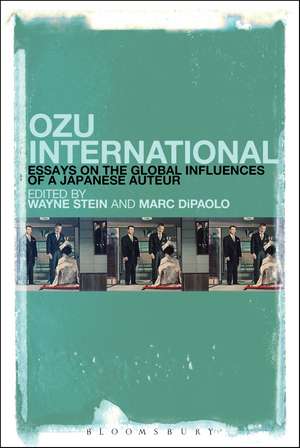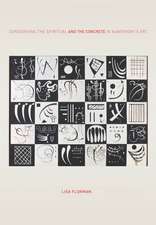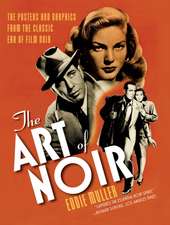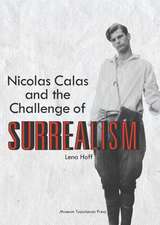Ozu International: Essays on the Global Influences of a Japanese Auteur
Editat de Wayne Stein, Prof Marc DiPaoloen Limba Engleză Paperback – 21 sep 2016
| Toate formatele și edițiile | Preț | Express |
|---|---|---|
| Paperback (1) | 256.20 lei 6-8 săpt. | |
| Bloomsbury Publishing – 21 sep 2016 | 256.20 lei 6-8 săpt. | |
| Hardback (1) | 772.98 lei 6-8 săpt. | |
| Bloomsbury Publishing – 6 mai 2015 | 772.98 lei 6-8 săpt. |
Preț: 256.20 lei
Preț vechi: 330.52 lei
-22% Nou
Puncte Express: 384
Preț estimativ în valută:
49.03€ • 52.42$ • 40.88£
49.03€ • 52.42$ • 40.88£
Carte tipărită la comandă
Livrare economică 17 aprilie-01 mai
Preluare comenzi: 021 569.72.76
Specificații
ISBN-13: 9781501320040
ISBN-10: 1501320041
Pagini: 224
Ilustrații: 35 bw illus
Dimensiuni: 152 x 229 x 12 mm
Greutate: 0.3 kg
Ediția:NIPPOD
Editura: Bloomsbury Publishing
Colecția Bloomsbury Academic
Locul publicării:New York, United States
ISBN-10: 1501320041
Pagini: 224
Ilustrații: 35 bw illus
Dimensiuni: 152 x 229 x 12 mm
Greutate: 0.3 kg
Ediția:NIPPOD
Editura: Bloomsbury Publishing
Colecția Bloomsbury Academic
Locul publicării:New York, United States
Caracteristici
Proposes new frameworks for thinking about Ozu - using the variety of backgrounds from the international lineup of contributors
Notă biografică
Wayne Stein is Professor at the University of Central Oklahoma, USA, and teaches classes on Kurosawa, Japanese horror, and Vietnam War cinema. He has coauthored the readers Fresh Takes (2009) and Strategems (2009) and has written various chapters in books and encyclopedia entries on Asian American literature and Asian cinema. Marc DiPaolo is Assistant Professor of English and Film at Oklahoma City University, USA, and is the author of War Politics and Superheroes and Emma Adapted (2007); editor of Godly Heretics: Essays on Alternative Christianity in Literature (2013) and Unruly Catholics: Faith, Progressivism, and Cultural Studies (2013).
Cuprins
Preface - Ozu, Ray Carney, and the Problem of Ethical Spectatorship Marc DiPaolo, Oklahoma City University, USAAcknowledgementsIntroduction Part I. Ozu in Cultural Context: Considering Class, Gender, and Domestic SpacesChapter One. Tokyo is a Nice Place: The Suburban, the Urban, and the Space In-Between in Early Ozu John Berra, Nanjing University, ChinaChapter Two. Vanished Men, Complex Women: Gender, Remembrance, and Reform in Ozu's Postwar Films Mauricio Castro, Purdue University, USAChapter Three. Tokyo Twilight: Alienation, Belonging and the Fractured Family Elyssa Faison, University of Oklahoma, USAChapter Four. A Sensitivity to Things: mono no aware and Zen in Late Spring and Equinox Flower J. M. Hammond, University of London, UKPart II. Ozu's International Reception and InfluencesChapter Five. Too Slow to Handle? Ozu, Malick, and the Art-House Family Drama Isolde Vanhee, LUCA School of Arts, BelgiumChapter Six. Good Morning: The Limits of Cinema and the Issue of Order Suzanne Beth, University of Montreal, CanadaChapter Seven. In Yoko's Room: Hou, Ozu, and the Poetics of SpaceTom Paulus, University of Antwerp, BelgiumChapter Eight. The Representation of Time as Death: Authentic Being in Tokyo Story and Last Year at Marienbad Jack Lichten, Sophia University, JapanAfterword - The Samsara of Ozu Cinema:Death and Rebirth in our Daily Struggles Wayne Stein, University of Central Oklahoma, USAAbout the ContributorsIndexA Mantra of Liberation
Recenzii
These sophisticated essays certainly challenge, deepen and complicate our standard understanding of Ozu. All the more refreshing is that they are written in a clear, lively style, without a hint of academic jargon.
From new perspectives on canonical films to new entries into the canon, this scintillating study of Ozu's cinema is truly a must-read for anyone who cares about its subject. No less important than new contextual understandings of Ozu's films drawn from the range of his career are the ways, often surprising but always convincing, that these essays demonstrate Ozu's influence on global cinema. No appreciation of Ozu is complete without this latest addition to the ever-growing literature on Japan's most fascinating and increasingly influential filmmaker.
From new perspectives on canonical films to new entries into the canon, this scintillating study of Ozu's cinema is truly a must-read for anyone who cares about its subject. No less important than new contextual understandings of Ozu's films drawn from the range of his career are the ways, often surprising but always convincing, that these essays demonstrate Ozu's influence on global cinema. No appreciation of Ozu is complete without this latest addition to the ever-growing literature on Japan's most fascinating and increasingly influential filmmaker.












